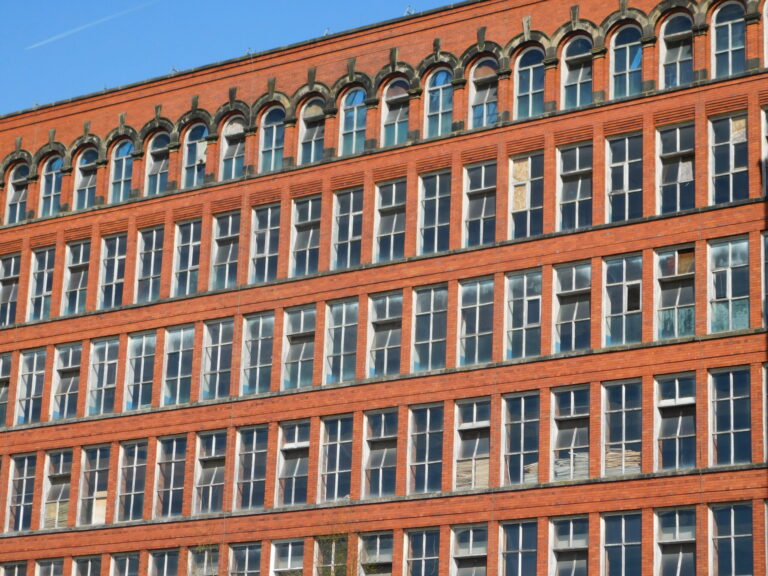
The risk posed to the future of the East Midlands’ only World Heritage Site is now firmly in the headlights of national Government – a year after its threatened status became reality.
For years, residents, campaigners and councillors alike have been preaching the hazards of inappropriate housing and overdevelopment in one of the world’s most protected historic landscapes – the Derwent Valley Mills.
A prime example of the issues facing the home of the Industrial Revolution is plain to see in one of its most famous landmarks – the Belper Mills site.
The mills have sat derelict for years and plans to turn them into flats and other facilities have faltered due to costs and heritage issues, with developers looking to front cash for improvements which would be unaffordable to most, including local councils, dropping out after perpetual delays.
Now almost all of its many windows are smashed, with a resident peregrine family seen as its only saving grace as the forlorn gateway to Belper and the Derwent Valley Mills as a whole.
A real fear is that if this symbol of the area’s industrial heritage cannot be carefully curated and protected then retaining the area’s spot on the world stage has little hope.
Stretching 15 miles from Matlock Bath and Cromford in the north, through Belper, Milford, Darley Abbey and into Derby – including the Belper Mills complex and Derby’s Silk Mill – the Derwent Valley Mills has had international status and protection since 2001.
It is the only World Heritage Site in the East Midlands and one of just two in the Midlands, alongside Ironbridge Gorge in Shropshire.
In the summer of 2024, UNESCO, an international agency promoting arts and culture, confirmed it had “grave concern” about the future of the Derwent Valley Mills World Heritage Site due to a number of “significant” and “inappropriate” schemes being approved in the historic area.
It had urged the UK Government to halt all new developments which could further harm the outstanding universal value of the mills and their settings.
A year later an official parliamentary group has been formed aimed at protecting the UK’s 35 World Heritage sites, including the Derwent Valley Mills.
Two of Derbyshire’s MPs, Mid Derbyshire MP Jonathan Davies – chairman of the new group – and Derbyshire Dales MP John Whitby, are part of the new parliamentary group.
This comes four years after Liverpool’s docklands became just the third World Heritage Site worldwide to have its status “de-listed” due to harmful developments in 2021.
Previously de-listed sites were Germany’s Dresden Elbe Valley in 2009 and Oman’s Arabian Oryx Sanctuary in 2007.
Anyone who has regularly followed housing development in the Derwent Valley Mills area – primarily Amber Valley, Derbyshire Dales and Derby – will see the impact of the World Heritage Site and its “buffer zone” frequently discussed and accounted for.
Most recently, this featured heavily and was the main reason for refusal of a diminutive nine-house development in Plains Lane, Blackbrook – a mile west of Belper.
The Derwent Valley Mills World Heritage site covers more than 3,000 acres, while its wider “buffer zone” covers more than 10,000 acres.
Ultimately the threat to the Derwent Valley Mill’ status is hinged on the approval of 118 homes at Whitehouse Farm, near Belper, signed off by Secretary of State at the time, Robert Jenrick, in 2020, and in the same year Derby City Council’s approval of the Landmark, a 17-storey 202-apartment block project in Phoenix Street, 150 metres from the Silk Mill.
Since UNESCO formally tabled the risk to the Derwent Valley Mills’ international status, plans for a long-awaited scheme to turn Crich Quarry into a waterpark resort, partly due to its potential impact on the heritage site and its wider buffer zone, were sent packing in September 2024.
UNESCO had specifically named the Crich Quarry plans, alongside a number of Derby developments, in a report detailing schemes it urged the UK Government not to approve in their current forms.
It had said it “reiterates its grave concern that development pressures on the property, coupled with the inability of the management system to safeguard its outstanding universal value, are reaching such proportions that, if not addressed as a matter of urgency, ascertained or potential threat, could be confirmed”.
Mr Davies said: “UNESCO World Heritage Sites articulate the pinnacle of human existence and the best of the natural world.
“However, some of the UK’s sites face challenges that risk them being delisted by UNESCO.
“The special reasons these sites were designated of global importance must be safeguarded for future generations. This group campaigns for that.”
Mr Whitby said: “The Derwent Valley Mills World Heritage Site is central to our local history and culture, and I will continue advocating for the changes needed to ensure its value is fully recognised and its designation protected.
“I also want to use this group to pay tribute to the wonderful grassroots organisations who support this special site, as well as the tireless work of the DVMWHS management team.
“In times of rising conflict and global instability, the principle of peace through global cooperation, which lies at the heart of UNESCO, is more pertinent than ever before.”






